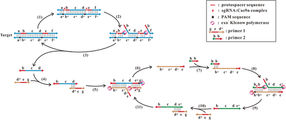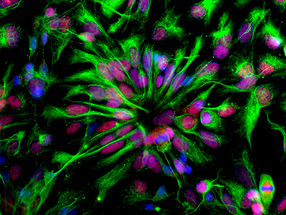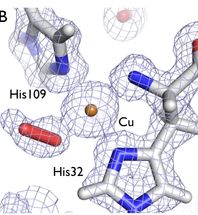New olive oil created by CSIC helps prevent type 2 diabetes
Researchers at the Institute of Fat and CIBEROBN have demonstrated the usefulness of an oil enriched in oleanolic acid in the prevention of this disease.

Olive oil enriched in oleanolic acid opens the door to personalized diets to combat chronic degenerative diseases associated with obesity and aging.
CSIC
A new type of olive oil developed by the Group of Bioactive Compounds, Nutrition and Health of the Institute of Fat, of the Spanish National Research Council (CSIC), has demonstrated its usefulness as a functional food in the prevention of type 2 diabetes mellitus. This is an oil enriched in oleanolic acid and already has a patent shared between the CSIC and the Andalusian Health Service (SAS).
The usefulness of this functional food in the prevention of type 2 diabetes mellitus has been demonstrated by the PREDIABOLE Study, in which 176 prediabetic patients from Seville participated. The study has been designed jointly by José María Castellano, CSIC researcher and director of the Bioactive Compounds, Nutrition and Health Group, and José Lapetra and José Manuel Santos, both scientists from the Centre for Biomedical Research in the Physiopathology Network of Obesity and Nutrition (CIBEROBN), of the Carlos III Health Institute. The results showed that consumption of olive oil enriched in oleanolic acid can halve the risk of developing diabetes in prediabetic individuals, i.e., those with altered basal blood glucose and altered glucose tolerance. The research has been published in the journal Diabetes, Obesity and Metabolism.
This new functional food "incorporates therapeutic concentrations of natural oleanolic acid, obtained with very high purity from the olive leaf, by means of a procedure also patented in 2001 by the same group", explains Castellano. In addition to the leaf of the olive tree, oleanolic acid is found in the cuticle of the olive; however, only a small fraction passes into the olive oil during processing. By enriching the oil with oleanolic acid, a new functional food is obtained that opens the doors to personalized diets to fight degenerative chronic diseases associated with obesity and aging, such as diabetes, cardiovascular and neurodegenerative diseases, and certain types of cancer.
Clinical trial in primary care
According to the CSIC researcher, the PREDIABOLE Study is a pioneering, randomized, double-blind, controlled clinical study developed between 2010 and 2018, in close coordination with the Primary Health Care District of Seville. The trial involved 176 prediabetic individuals from 25 SAS health centres in the city of Seville. For 30 months, patients daily ingested 55 milliliters of functional olive oil enriched in oleanolic acid. The result was a 55 % reduction in the risk of developing type 2 diabetes compared to the consumption of the same unenriched commercial olive oil.
"In addition to being effective, the daily intake of this new food has proven to be safe. Not only have the volunteers participating in the clinical trial not described adverse effects during the course of the trial, but a first retrospective study of electronic medical records has shown a lower incidence of cardiovascular, renal and hepatic events during the period from recruitment to two years after their participation in the trial ends. The good acceptance of dietary intervention and its palatability show its potential to be maintained in the long term", concludes Castellano.
Note: This article has been translated using a computer system without human intervention. LUMITOS offers these automatic translations to present a wider range of current news. Since this article has been translated with automatic translation, it is possible that it contains errors in vocabulary, syntax or grammar. The original article in Spanish can be found here.
Original publication
Santos-Lozano J.M., Rada M., Lapetra J., Guinda Á., Jiménez-Rodríguez M.C., Cayuela J.A., Ángel-Lugo A., Vilches-Arenas Á., Gómez-Martín A.M., Ortega-Calvo M. y Castellano J.M. Prevention of type 2 diabetes in prediabetic patients by using functional olive oil enriched in oleanolic acid: The PREDIABOLE study, a randomized controlled trial. Diabetes, Obesity and Metabolism.

























































